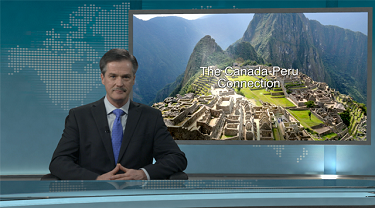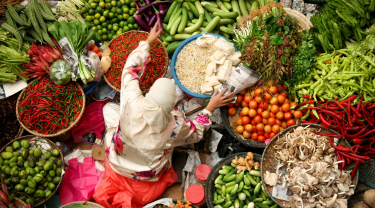The Canada-Peru Connection
Canada and Peru have a lot of great reasons to connect

Last week, a large delegation of Peruvian industrialists, policy-makers and financiers descended on Toronto for the annual PDAC mining convention and trade show. Some of Peru’s highest officials were on hand for a Peru-sponsored gala luncheon on Tuesday. What’s behind all this attention – what is the Canada-Peru connection, and what is its future?
Miners know well that Peru is laden with rich ore bodies. It’s perhaps best known for Incan gold, which is prominently displayed on the national flag. Peru still has lots of low-cost gold, but there’s much more. It boasts the world’s third-largest deposits of copper, and it’s the number two global producer after Chile. The story goes on: it is among the top four producers of silver, lead zinc, tin and molybdenum. The deposits are so great that they are spread across most of Peru’s provinces. If you are a miner or prospector, you really want to be there.
Peru: Leveraging nascent global growth
Why now? Well, pricing is not as great as it was in the recent heyday years leading up to and just following the Great Recession. But global growth is ramping up, lifting prices up from their early-2016 lows and stoking interest in the industry. Moreover, the nascent uptick in the world economy is expected to last for a number of years yet, pulling large, mineral-hungry emerging markets along for the ride. Things are looking good for minerals in general, and interest in Peru’s cache is re-igniting.
This may be the case, but all projects need to be financed and developed. With interest rates now generally entering a tightening phase, there are broad-based concerns about access to financing, especially in emerging markets. Easy liquidity is slowly becoming a story of the past, and there is worry about spread-widening and the ability to pay up. Thankfully, Peru compares favourably with many other emerging market suitors. It has an investment-grade rating, and has had for a number of years – ranking second in Latin America, sharing the space with Mexico. It is second behind Chile in macroeconomic conditions, well ahead of other mining-focused Latin American markets. The Fraser Institute’s 2017 Mining Survey ranks Peru 19th of 91 mining jurisdictions studies, and in South America is second in terms of investment attractiveness. Add to that a strong track record of fiscal and monetary management and a well-developed financial sector, and the case for being there appears strong.
The market does have its weaknesses, though. Many potential projects are hampered by poor transportation and energy infrastructure. A fraction of potential projects went forward in 2017, and much of this was related to reconstruction in the wake of the $9 billion in damage caused by extensive flooding. Corruption investigations in the wake of the Odebrecht scandal are also hobbling infrastructure construction. Add to that the lack of local institutional capacity for funding and administration of infra-structure projects and the picture of potential looks less rosy.
Mining bonanza in Peru
In spite of this, the world’s miners are lining up to do business in Peru. The pipeline of mining projects over the coming five years adds up to USD 47 billion, on top of the USD 42 billion invested between 2012 and 2015. With the world on its doorstep, why is Peru so interested in Canada? Well for starters, we are in the project mix: currently there are two new Canadian plays that are confirmed for development, and nine others in exploration.
Canada’s activities go well beyond mining, though. There is a very significant in infrastructure projects as well. Over half of EDC’s book in Peru is in the infrastructure space, and clearly there is much more to be done.
Where things get even more interesting, though, is not that, but how these projects are being done. I heard more than one delegate from Peru mention the country’s need for higher ethical values in construction, engineering and mining activities. They seem aware of the issues that corrupt and encumber their system, and are looking for solutions to overcome the sclerosis that corruption scandals have created. Officials recognize the need for resolution, and are tackling the task. Working together with partners like Canada have worked through tricky issues is seen as a means to paving Peru’s path to prosperity.
The bottom line?
Peru’s potential is staggering. Institutional, environmental and ethical issues are stalling success, putting a high price on solutions Canada is well-placed to serve up.
















